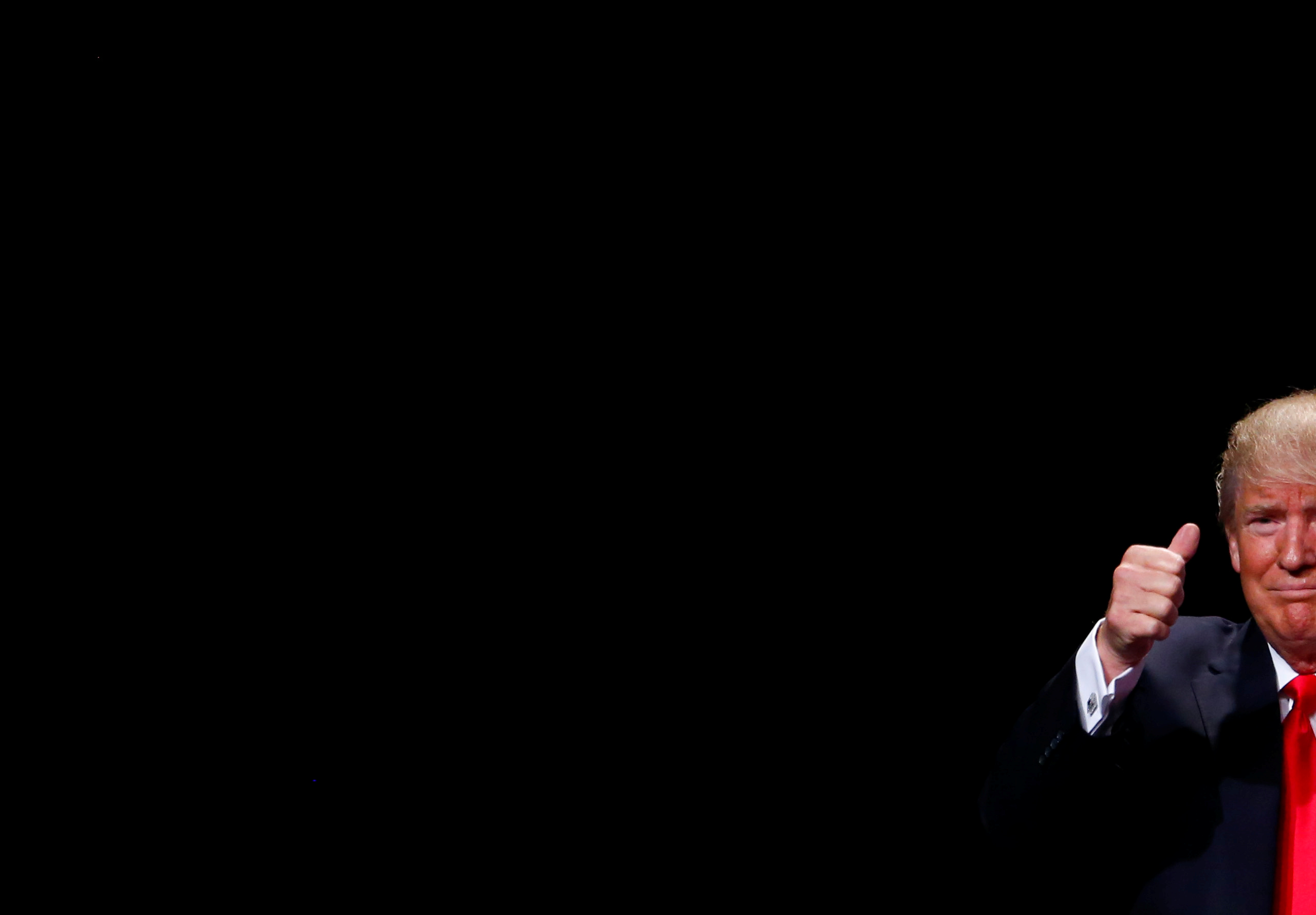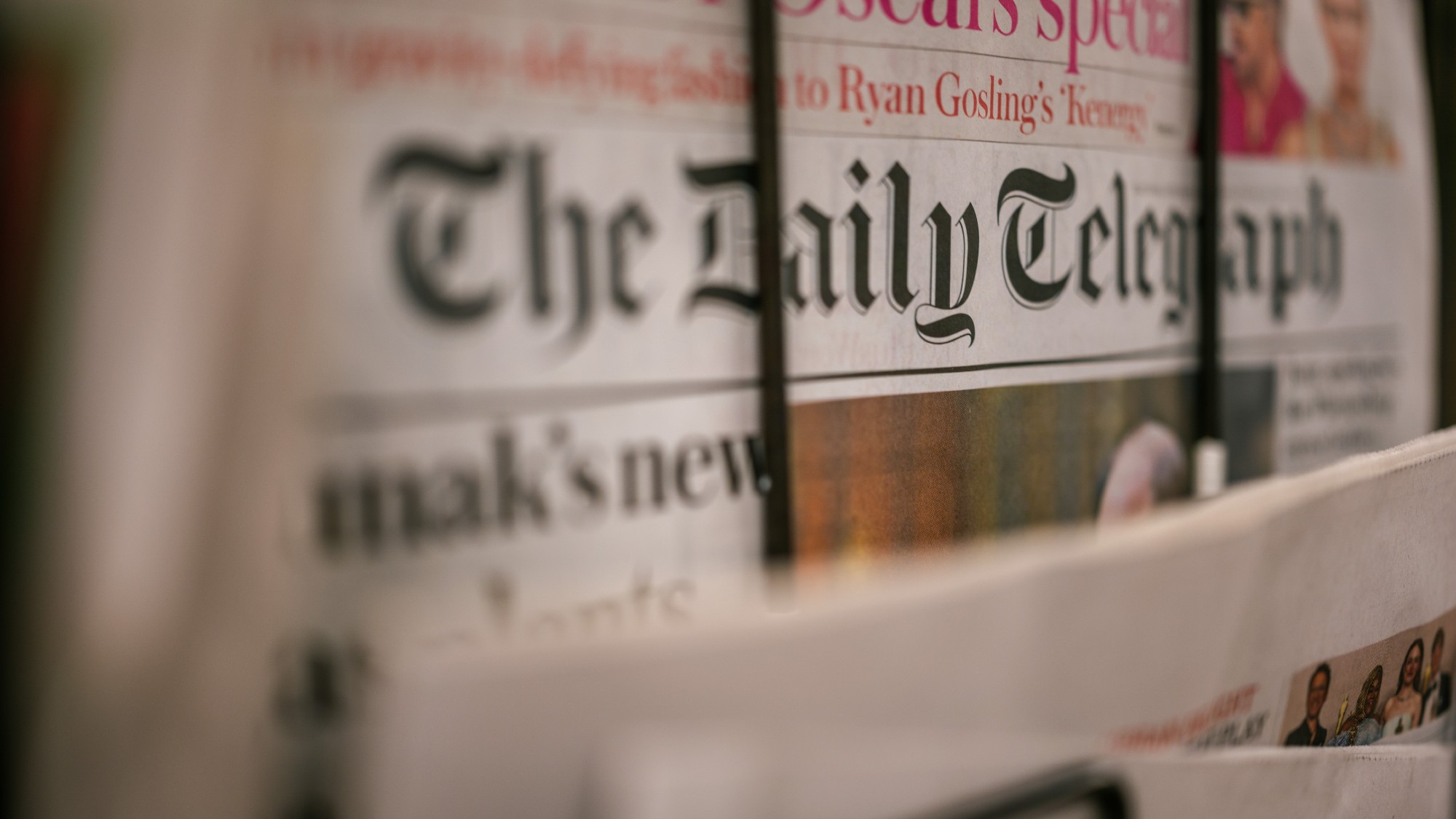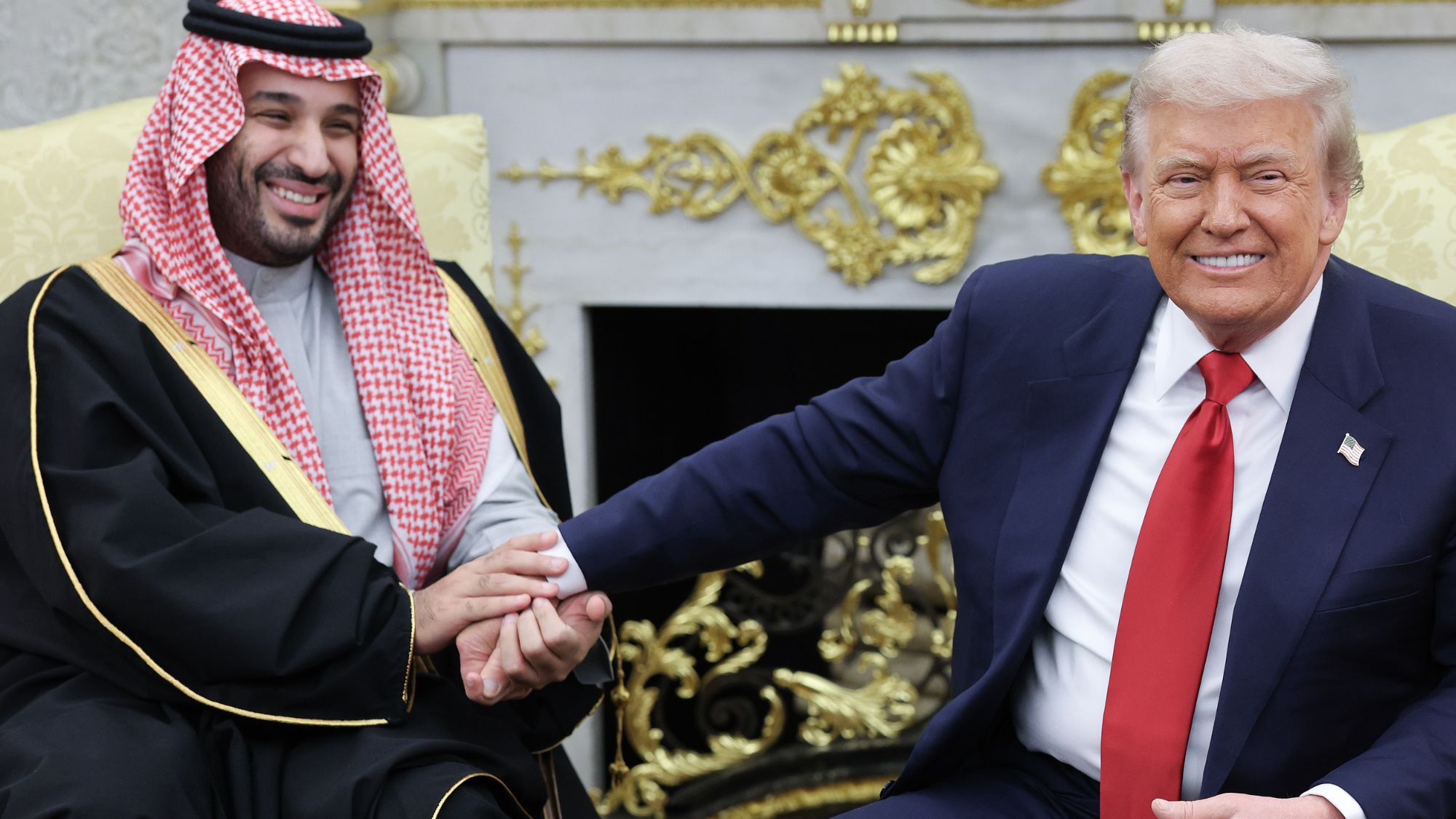Donald Trump's big economic speech was a pivot to nowhere
The Republican nominee is suddenly trying to run a serious, ideas-based campaign. Just without the serious ideas.


Maybe Donald Trump's big economic speech in Detroit on Monday was, finally, his long-awaited "pivot." Perhaps from now until Election Day, Trump will run a serious, ideas-based presidential campaign that focuses on why his policies are better for America than Hillary Clinton's. So long, "Crooked Hillary."
Maybe, but unlikely.
First, Trump has given no evidence of his willingness or ability to abstain from ugly personal attacks or childish insults. Unless the wealthy businessman is chained to a teleprompter for the next three months and banned from Twitter, Trump probably gonna' Trump. That's his shtick, and it's gotten him this far. Trump isn't ever going to be Jeb Bush, just like Carrot Top isn't ever going to be Jon Stewart.
The Week
Escape your echo chamber. Get the facts behind the news, plus analysis from multiple perspectives.

Sign up for The Week's Free Newsletters
From our morning news briefing to a weekly Good News Newsletter, get the best of The Week delivered directly to your inbox.
From our morning news briefing to a weekly Good News Newsletter, get the best of The Week delivered directly to your inbox.
Second, you can't run a serious, ideas-based presidential campaign if you don't have serious ideas that realistically address modern America's economic challenges. And Trump, for the most part, still doesn't. And that's unlikely to change — even with his new, financier-heavy "economic advisory council."
Here's why: The wealthy businessman has given three major speeches this summer outlining his economic views. And they've all been remarkably consistent in being centered on how trade has ruined America. Near Pittsburgh in June, Trump blamed trade and globalization for "moving our jobs, our wealth, and our factories to Mexico and overseas." At the Republican National Convention, Trump said his "different" economic vision "begins with a new, fair trade policy that protects our jobs and stands up to countries that cheat." And in that lengthy speech to the Detroit Economic Club on Monday, Trump blamed trade deals for the Motor City's decline: "The skyscrapers went up in Beijing, and in many other cities around the world, while the factories and neighborhoods crumbled in Detroit."
The heart of Trump-onomics remains his apparent belief — one he's consistently promoted since the 1980s — that trade and globalization are what's gone wrong with the American economy. If we would only tear up a half century's worth of trade deals, America's 1960s, manufacturing-heavy economy would somehow return.
Of course, even if it were possible turn the clock back on trade and globalization — not to mention technological progress — we really wouldn't want to. As a 2015 White House report noted, the reduction in U.S. tariffs since World War II has meant an additional $10,000 in income per average American household. And a recent survey of economists found hardly any that blamed badly negotiated trade deals for Rust Belt job losses.
A free daily email with the biggest news stories of the day – and the best features from TheWeek.com
Now not all American workers are trade winners — especially with China. But the bigger challenge going forward is dealing with a more automated economy. But Trump has had nothing to say about training workers for this new economy or helping those who lose out.
The newer Trump ideas are often no better than the old ones. During her RNC speech, Ivanka Trump spoke about the need for affordable child care in the United States. Her father followed through in Detroit, saying parents should be able to fully deduct the cost of child care spending from their taxes — which is great for folks who have lots of taxable income. Like, you know, Ivanka Trump. But what about all of Trump's working class supporters? Most lower-income families don't really have much taxable income, if any. Giving them a tax deduction for child care isn't much help. Team Trump says the plan would cost $20 billion a year, yet it would seem to exclude those with the most need. Yet even under his revised tax plan — it now costs $2 trillion over a decade rather than $10 trillion, assuming rapid economic growth — the richest Americans still get a large tax cut. And if that growth doesn't show up, most Americans would see little direct benefit. Maybe the only people guaranteed to benefit from Trump-onomics are the Trumps.
Of course, none of this may matter to hardcore Trump supporters. They often seem impervious to fact checking or data. Trump's appeal seems more visceral, and may have as much or more to do with cultural anxiety as economic. But recent polls suggest there may not be enough of them to put Trump in the Oval Office or even make this election particularly close. If so, the next Trump pivot will be back to Trump Tower, not to the White House.
James Pethokoukis is the DeWitt Wallace Fellow at the American Enterprise Institute where he runs the AEIdeas blog. He has also written for The New York Times, National Review, Commentary, The Weekly Standard, and other places.
-
 Rothermere’s Telegraph takeover: ‘a right-leaning media powerhouse’
Rothermere’s Telegraph takeover: ‘a right-leaning media powerhouse’Talking Point Deal gives Daily Mail and General Trust more than 50% of circulation in the UK newspaper market
-
 The US-Saudi relationship: too big to fail?
The US-Saudi relationship: too big to fail?Talking Point With the Saudis investing $1 trillion into the US, and Trump granting them ‘major non-Nato ally’ status, for now the two countries need each other
-
 Crossword: November 30, 2025
Crossword: November 30, 2025The daily crossword from The Week
-
 Has Zohran Mamdani shown the Democrats how to win again?
Has Zohran Mamdani shown the Democrats how to win again?Today’s Big Question New York City mayoral election touted as victory for left-wing populists but moderate centrist wins elsewhere present more complex path for Democratic Party
-
 Millions turn out for anti-Trump ‘No Kings’ rallies
Millions turn out for anti-Trump ‘No Kings’ ralliesSpeed Read An estimated 7 million people participated, 2 million more than at the first ‘No Kings’ protest in June
-
 Ghislaine Maxwell: angling for a Trump pardon
Ghislaine Maxwell: angling for a Trump pardonTalking Point Convicted sex trafficker's testimony could shed new light on president's links to Jeffrey Epstein
-
 The last words and final moments of 40 presidents
The last words and final moments of 40 presidentsThe Explainer Some are eloquent quotes worthy of the holders of the highest office in the nation, and others... aren't
-
 The JFK files: the truth at last?
The JFK files: the truth at last?In The Spotlight More than 64,000 previously classified documents relating the 1963 assassination of John F. Kennedy have been released by the Trump administration
-
 'Seriously, not literally': how should the world take Donald Trump?
'Seriously, not literally': how should the world take Donald Trump?Today's big question White House rhetoric and reality look likely to become increasingly blurred
-
 Will Trump's 'madman' strategy pay off?
Will Trump's 'madman' strategy pay off?Today's Big Question Incoming US president likes to seem unpredictable but, this time round, world leaders could be wise to his playbook
-
 Democrats vs. Republicans: who are US billionaires backing?
Democrats vs. Republicans: who are US billionaires backing?The Explainer Younger tech titans join 'boys' club throwing money and support' behind President Trump, while older plutocrats quietly rebuke new administration
